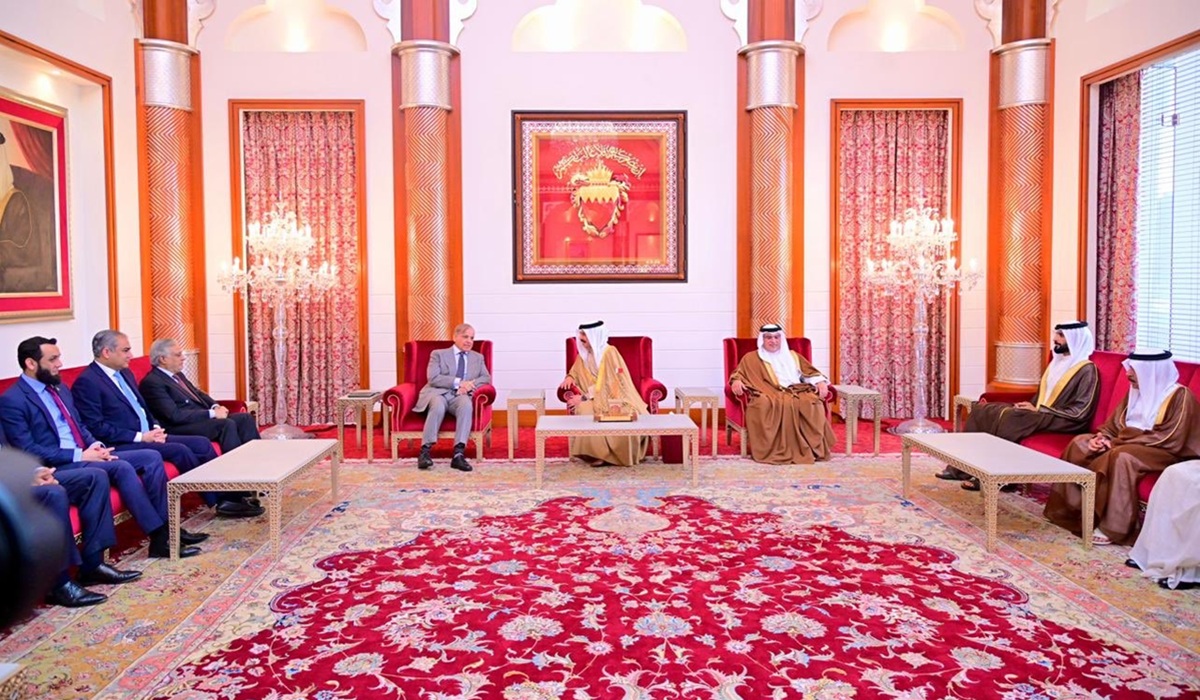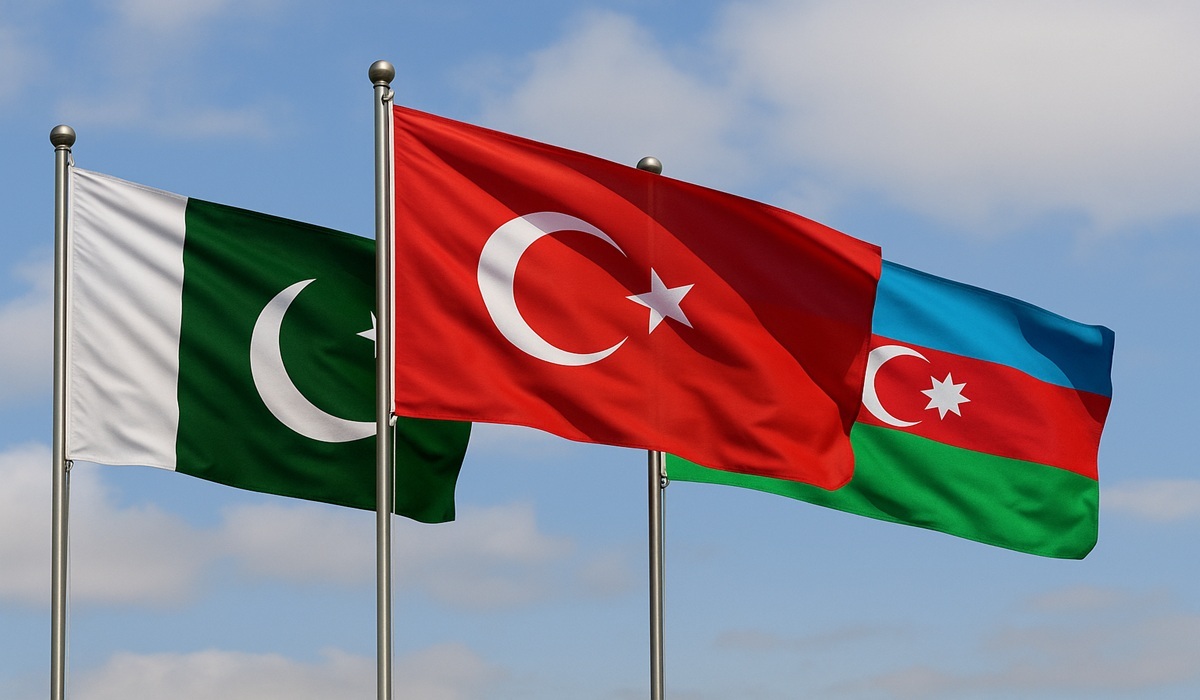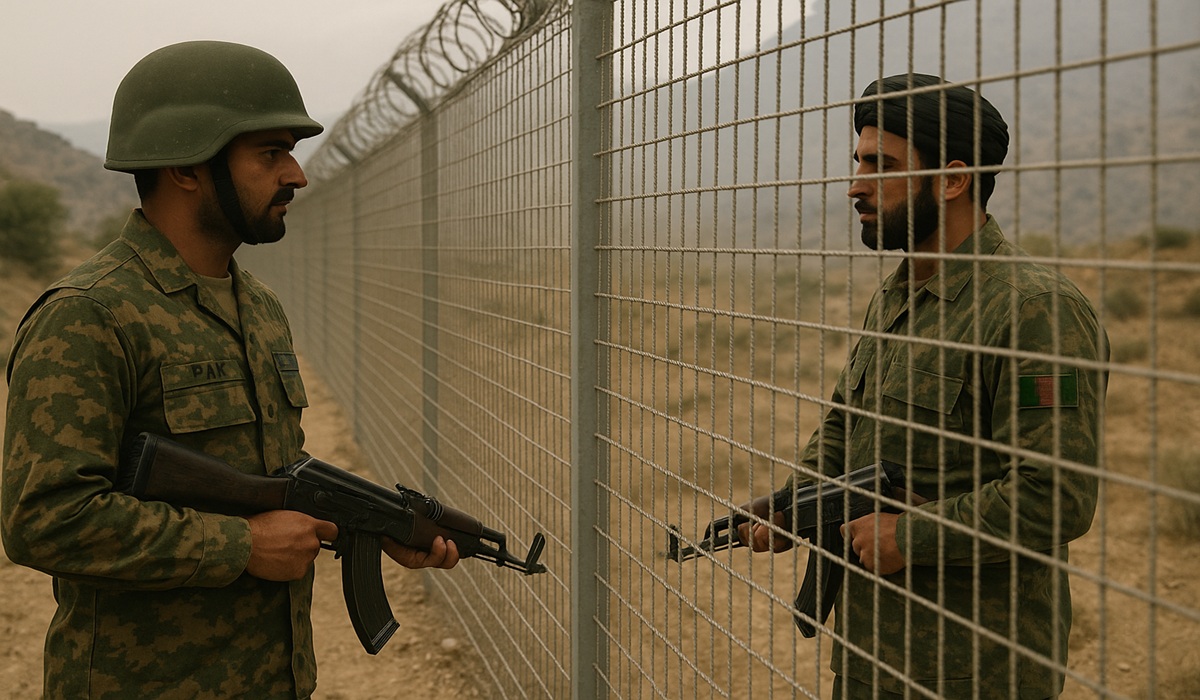Premier Shehbaz Sharif’s Visit to Bahrain: Strategic Diplomacy, Economic Objectives, and the Israel Question
- Bakhtawar Naveed
- Middle East
- November 26, 2025

Prime Minister Shehbaz Sharif’s recent visit to the Kingdom of Bahrain marked an important moment in Pakistan’s ongoing effort to recalibrate its Gulf diplomacy. Far from a ceremonial exchange, the trip reflected evolving Middle Eastern geopolitics, Pakistan’s internal economic pressures, and the government’s drive to reinforce partnerships capable of delivering both material and diplomatic benefits. At a time of fiscal strain, policy uncertainty, and growing regional complexity, Bahrain’s prioritization as a destination carried deeper strategic meaning.
The importance of the two-day visit can be understood through three central lenses: economic diplomacy, regional and strategic cooperation, and Pakistan’s sensitive positioning within broader Middle Eastern realignments.
Pakistan’s engagement with the Gulf has long been guided by stability, continuity, and deeply rooted relationships with regional monarchies. While smaller in size than Saudi Arabia or the United Arab Emirates, Bahrain wields influence well beyond its physical scale, particularly in finance, security, and regional diplomacy. The visit reaffirmed the significance of that influence.
At the center of the mission lay Pakistan’s urgent need for foreign investment and economic relief. Declining exports, persistent trade imbalances, and mounting fiscal pressures have made external capital and new trade opportunities essential for stabilization and recovery. In this context, Bahrain represents both a strategic partner and a potential financial gateway.
With its globally respected financial sector and investment networks, Bahrain is positioned to serve as a conduit for wider Gulf engagement. The Prime Minister’s meetings with senior Bahraini leadership, financial institutions, business councils, and private investors were aimed at opening these channels. Discussions reportedly focused on attracting investment into Pakistan’s energy and infrastructure sectors, expanding bilateral trade, facilitating Bahraini investors through special economic zones, increasing labor market opportunities for Pakistani workers, strengthening collaboration in fintech and digital banking, and establishing fast-track investor assistance mechanisms.
Should even part of these conversations translate into formal agreements, the impact on Pakistan’s economy could be meaningful. Beyond direct capital inflows, Bahraini engagement carries a signalling effect across the region. Investment confidence from Manama often encourages interest from other Gulf capitals, particularly the UAE and Saudi Arabia. In this sense, the visit can be seen as an attempt to generate a broader regional ripple effect, positioning Pakistan as a viable destination for renewed Gulf cooperation.
However, the visit was not limited to economics alone. Bahrain is also a strategic node in the Gulf, hosting the United States Fifth Fleet and playing a key role in regional maritime security. Strengthening relations with Bahrain therefore reinforces Pakistan’s indirect links to wider security frameworks in the region.
Pakistan and Bahrain have historically cooperated in areas such as military training, intelligence sharing, counter-terrorism operations, maritime security, and defence capacity-building. In an environment shaped by shifting alliances, regional tensions, and increasing maritime vulnerability, sustaining these partnerships is essential. The visit sent a signal of Pakistan’s continued commitment to regional stability and collective security engagement.
Inevitably, the most sensitive and widely-discussed question surrounding the visit concerned the issue of Israel, particularly as Bahrain normalised relations with Israel under the Abraham Accords in 2020. This speculation, while understandable, requires careful and factual context.
Pakistan’s policy regarding Israel has been consistent and publicly stated for decades. Recognition remains tied to a just, comprehensive, and acceptable settlement of the Palestinian issue. This position has been reiterated across successive governments, including the current administration. Official sources have already dismissed suggestions that the Bahrain visit indicated a shift in policy or external pressure to revise this stance.
The Israeli question remains deeply connected to Pakistan’s national narrative, political reality, and public sentiment. Any alteration without broad national consensus would provoke intense political and social backlash. At present, there is no credible evidence to support claims that the visit marked an indirect path toward normalization. Interpreting the trip through that lens risks misunderstanding its actual intent.
Rather, the visit should be understood in the established framework of Pakistan–Bahrain relations: strengthening economic ties, supporting labor and remittance flows, enhancing defence cooperation, and maintaining diplomatic goodwill.
The true balancing act lies not in engaging with Gulf partners, but in managing the internal political implications of those engagements. Public sensitivity around Palestine remains strong, and opposition voices are quick to exploit vagueness or ambiguity in foreign policy. This places a responsibility on the government to exercise transparency, brief parliament where appropriate, and maintain clear communication with the public to ensure long-term legitimacy of its diplomatic initiatives.
If the outcomes of this visit develop in a productive direction, Pakistan could benefit on several fronts. Investment in critical sectors such as energy, infrastructure, agriculture, petrochemicals, and finance could support growth and employment. Expanded labor agreements would directly support thousands of Pakistani families through remittances. Financial partnerships with Bahraini institutions could accelerate the modernization of Pakistan’s banking system and digital payment infrastructure. Strategically, closer ties with Bahrain would enhance Pakistan’s positioning across the broader Middle East.
Prime Minister Shehbaz Sharif’s visit to Bahrain therefore reflects a pragmatic and measured approach to foreign policy. It is rooted not in ideological realignment or controversial diplomacy, but in economic necessity, strategic relevance, and the steady cultivation of long-term partnerships. In an increasingly uncertain world, such calculated engagement may be one of Pakistan’s most valuable diplomatic tools.








